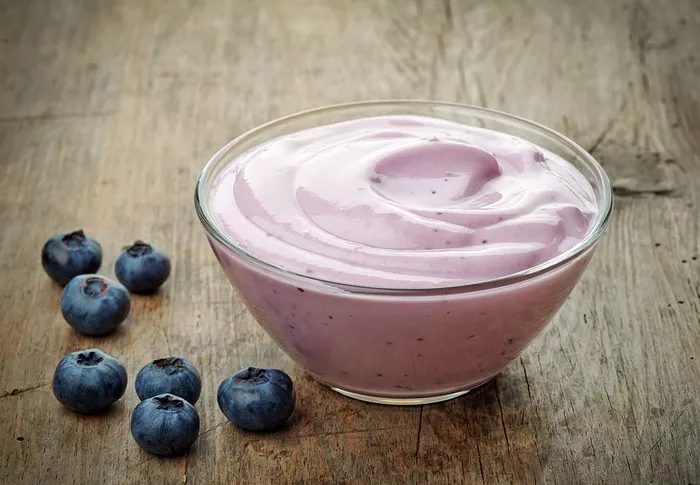Protein shakes have gained popularity as a convenient and effective way to supplement protein intake, promote muscle growth, and aid in recovery after exercise. However, for some individuals, concerns arise regarding the potential for weight gain. In this article, we’ll explore the relationship between protein shakes and weight gain to help you make informed decisions about incorporating them into your diet and fitness routine.
Understanding Protein and Weight
Protein is an essential macronutrient that plays a crucial role in building and repairing tissues, supporting immune function, and producing enzymes and hormones in the body. When it comes to weight management, protein has been shown to have a satiating effect, meaning it helps you feel fuller for longer, reducing overall calorie intake. Additionally, protein has a higher thermic effect compared to carbohydrates and fats, which means it requires more energy for digestion and absorption, further supporting weight management.
Protein Shakes and Calorie Content
Protein shakes are available in various forms, including whey, casein, soy, and plant-based options. These shakes typically come in powder form and can be mixed with water, milk, or other liquids to create a convenient and portable source of protein. The calorie content of protein shakes can vary depending on the brand, flavor, and serving size.
To determine whether protein shakes contribute to weight gain, it’s important to consider their calorie content in relation to your overall calorie intake. Protein shakes can range from 100 to 300 calories per serving, with some higher-calorie options designed specifically for weight gain or muscle building. If you consume protein shakes as part of your regular diet without adjusting your overall calorie intake, they can contribute to weight gain. However, when incorporated mindfully into a well-balanced diet and fitness routine, protein shakes can support weight management and even weight loss.
Protein Shakes and Meal Replacement
One concern regarding protein shakes and weight gain is their potential to replace whole food meals, leading to a calorie surplus. While protein shakes can serve as a convenient and nutritious option for a meal replacement, it’s important to consider the overall nutritional profile of your diet. Whole foods provide a wide range of essential nutrients, including fiber, vitamins, and minerals, that may be lacking in protein shakes alone.
If you’re using protein shakes as a meal replacement, ensure that you’re still consuming a varied and balanced diet that includes whole foods such as fruits, vegetables, whole grains, and lean protein sources. This approach ensures you receive a complete array of nutrients while also managing your calorie intake appropriately.
Timing and Purpose of Protein Shakes
When incorporating protein shakes into your routine, the timing and purpose of consumption can also impact weight management. Here are a few factors to consider:
Pre-Workout: Consuming a protein shake before a workout can provide a readily available source of amino acids to support muscle maintenance and prevent muscle breakdown during exercise. This can be beneficial for those looking to build or maintain lean muscle mass. However, it’s important to consider the calorie content of the shake and adjust your overall calorie intake accordingly.
Post-Workout: Protein shakes consumed after a workout can help replenish amino acids, promote muscle protein synthesis, and aid in recovery. This can be particularly beneficial for individuals engaged in resistance training or intense exercise. Choosing a protein shake with a fast-absorbing protein source, such as whey, can optimize muscle recovery and growth. Again, be mindful of the calorie content and adjust your overall calorie intake based on your goals.
Snack or Meal Replacement: Protein shakes can also be consumed as a snack or meal replacement throughout the day. They provide a convenient and portable option for individuals with busy schedules or those who struggle to meet their daily protein requirements. When usedas a snack or meal replacement, it’s important to consider the calorie content of the shake and ensure that it fits within your overall calorie goals for weight management.
Choosing the Right Protein Shake
When selecting a protein shake, there are a few factors to consider to support your weight management goals:
Protein Source: Choose a protein shake that uses high-quality protein sources such as whey, casein, or plant-based proteins like pea or hemp. These sources provide essential amino acids and are well-absorbed by the body.
Added Ingredients: Read the ingredient list to ensure that the protein shake doesn’t contain excessive added sugars, artificial sweeteners, or unnecessary additives. Opt for shakes with minimal ingredients and natural flavorings.
Calorie Content: Consider the calorie content of the protein shake and how it fits into your overall calorie intake. If you’re using the shake as a meal replacement, ensure it provides an appropriate balance of macronutrients and calories.
Individual Needs: Take into account your individual dietary needs, preferences, and any allergies or intolerances. Some protein shakes are specifically formulated for certain dietary requirements, such as gluten-free or lactose-free options.
Balanced Approach to Weight Management
To manage your weight effectively, it’s crucial to take a holistic approach that includes a well-balanced diet, regular physical activity, and a healthy lifestyle. Protein shakes can be a convenient and beneficial addition to your routine, but they should be viewed as a supplement to a nutritious whole food diet, rather than a sole solution for weight management.
Consider working with a registered dietitian or healthcare professional who can assess your specific nutritional needs, guide you in choosing the right protein shake, and help you create a personalized meal plan that supports your weight management goals.
Conclusion
In conclusion, protein shakes can be a valuable tool for individuals looking to increase their protein intake, support muscle growth, and aid in recovery. When consumed mindfully as part of a well-balanced diet and fitness routine, protein shakes can contribute to weight management and overall health. However, it’s important to consider the calorie content of the shake, adjust your overall calorie intake, and ensure that you’re still consuming a variety of whole foods to meet your nutritional needs. With a balanced approach and informed choices, protein shakes can be a beneficial addition to a healthy lifestyle.























